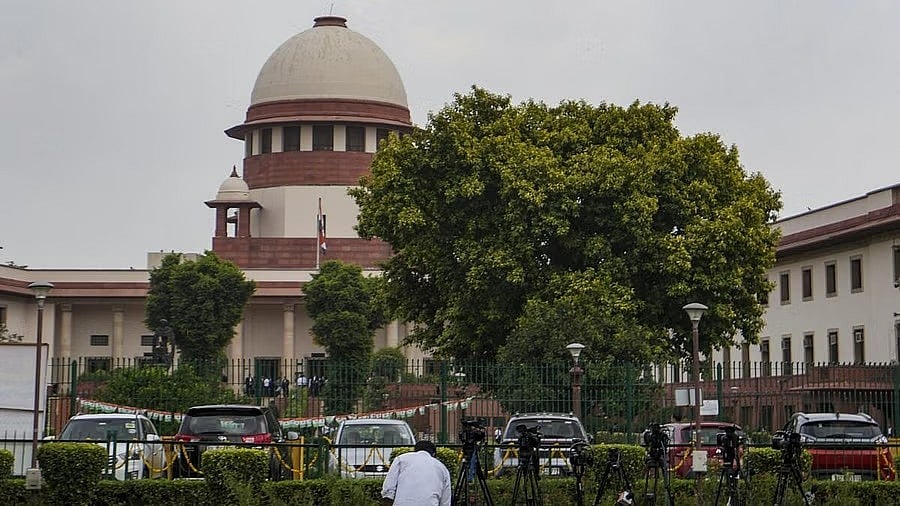
The Supreme Court of India.
Credit: PTI File Photo
New Delhi: The Supreme Court has said environmental jurisprudence must evolve contextually, taking into account both ecological imperatives and developmental exigencies.
"Indeed, there cannot be a simplistic binary choice between a park or a pond, as each serves distinct ecological and social functions contingent upon specific circumstances, geographical location, and evolving usage patterns," a bench of Justices Surya Kant and N Kotiswar Singh said.
In a judgment on May 30, 2025, the court set aside a 2018 Bombay High Court judgment directing the demolition of a recreational park built by the Municipal Corporation of Greater Mumbai (MCGM) on a site of historic Khajuria Lake at Kandivali West in Mumbai.
The bench said this court acknowledges that, albeit the High Court’s views were well-intentioned and prima facie the correct interpretation of settled notions such as the public trust doctrine, they nonetheless warranted reconsideration through the prism of practical realities and evolved ground conditions.
It said that the public trust doctrine establishes that certain environmental resources are held in trust by the state for the unimpeded enjoyment of the public and for posterity.
“Although the doctrine imposes a legal obligation upon governmental authorities to protect these resources for public benefit and ecological sustainability, extending to public lands, parks, forests, water bodies, wetlands, and other areas acquired by the State, its application must necessarily be calibrated according to the factual matrix and contemporary public needs," Justice Surya Kant wrote in the 16-page judgment for the bench.
Allowing the plea by the municipal bodies, the bench said that while the material on record acknowledges the historical existence of a water body at the subject property, it does not conclusively establish that this water body remained a functional pond by the relevant time.
The bench said the affidavits filed by officials of MCGM categorically stated that when work for the project commenced in 2009, the subject property existed in an abandoned and dilapidated state, having deteriorated into a garbage dumping ground that had completely lost its original character as a water body.
“As regards the current ecological value, the photographic evidence placed before us vividly illustrates the subject property as a verdant, well-maintained urban oasis replete with numerous mature trees and recreational facilities actively utilized by the community across all demographic segments,” the bench noted.
The court said in 2025, nearly 15 years have passed after the park became functional and an entire generation of children has grown up with this green space as an integral component of their daily existence, whilst the trees planted during the initial beautification have themselves matured into substantial specimens that now contribute significantly to the local ecosystem.
“The park serves as a vital recreational nucleus for children, offering safe spaces for play and physical activity; for senior citizens, providing dedicated areas for walking and social interaction; and for families, creating opportunities for community engagement and leisure,” the bench said.
The court found the recreational park presently delivers substantial public benefits that cannot be overlooked.
“It provides an essential green space in an increasingly concretised urban environment, with trees and other foliage contributing significantly to oxygen generation, air purification, and microclimate regulation. The ornamental water features, such as the fountain, though admittedly not equivalent to a natural water body, nonetheless contribute to biodiversity,” the bench said.
The bench examined whether a recreational park developed on an alleged historical water body ought to be demolished and the water body restored.
The court directed the MCGM to maintain and preserve the existing park in perpetuity as a green space exclusively for public use without any predominant commercial activity and constitute an expert committee within three months to explore the feasibility of developing an alternative water body in nearby areas to compensate for the ecological functions of the original water body.
